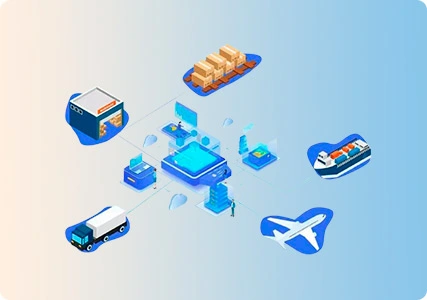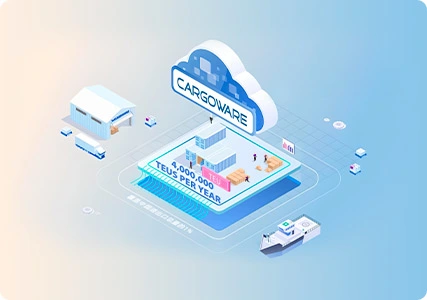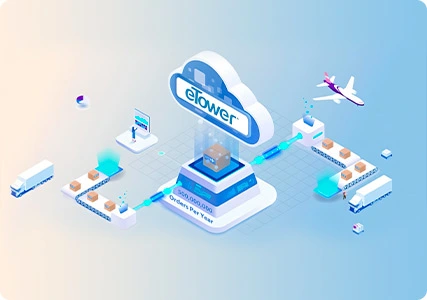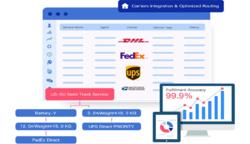As global logistics becomes more complex and interconnected, businesses are turning to Logistics ERP software to stay competitive. Whether you're a freight forwarder, transportation company, or warehouse operator, a robust ERP system for logistics provides the automation, visibility, and integration needed to scale efficiently.
Understanding Logistics ERP Systems
A logistics ERP system is a centralized logistics management software platform designed to manage and automate the entire logistics lifecycle, from order intake and inventory to transportation and billing. It integrates departments, streamlines operations, and provides real-time visibility across the supply chain.
Role of ERP in Supply Chain Management
Legacy systems can't handle the dynamic demands of international logistics. An ERP system logistics brings agility and insight by unifying disparate workflows. Businesses benefit from reduced manual tasks, smarter routing, improved customer experience, and scalable growth.
Key Features of Logistics ERP Software
Inventory & warehouse management
Order and shipment tracking
Carrier integrations via API/EDI
Real-time reporting & BI dashboards
Automated billing, profit analysis, and SLA tracking
Logistics management platforms like WallTech’s eTower are purpose-built to deliver these capabilities with cloud scalability and multi-party collaboration.
Logistics ERP Software for Freight Forwarders
Freight forwarding ERP software is specialized to handle the complexities of cross-border cargo management, booking automation, customs clearance, and document generation. It supports both FCL and LCL shipments, ensuring compliance and operational efficiency.
How CargoWare Enhances Freight Forwarding Operations?
WallTech’s CargoWare logistics system uses a smart SOP engine to automate workflows from booking to delivery. It integrates directly with customs, ports, and global carriers via API/EDI, reducing delays and errors.
Automation reduces operational workload by 60%
Built-in BI dashboards help monitor profit margins and carrier performance
Supports multi-language, multi-currency operations
Benefits for NVOCC and Global Forwarders
By implementing freight forwarding ERP systems, NVOCCs and global forwarders can significantly enhance operational efficiency and customer satisfaction. These systems enable businesses to optimize space utilization and container loads, ensuring better asset use and reduced shipping costs. Real-time tracking capabilities and accurate ETA visibility provide clients with transparency and trust throughout the shipping process. Additionally, the automation of invoicing and shipping document generation streamlines administrative tasks, reducing errors and processing time. Most importantly, these ERP platforms help improve compliance with international trade regulations, minimizing legal risks and facilitating smoother cross-border operations.
ERP Systems for Transportation Management
Transportation ERP software is vital for managing first-mile, middle-mile, and last-mile delivery. It links dispatch operations with fleet management, carrier allocation, and tracking modules, all under a unified platform.
How WallTech Streamlines Transportation with eTower?
eTower enables logistics providers to manage over 2 million orders daily, with 99% fulfillment timeliness. Transportation operations benefit from:
Smart routing and load planning
Real-time carrier rate comparisons and quote generation
Instant label creation and tracking number sync
WallTech’s ERP logistics software integrates with eCommerce platforms like Amazon, Shopify, carrier systems like FedEx, DHL, UPS, and Japan Post and Local delivery partners via API for seamless data exchange. These integrations eliminate manual work and accelerate end-to-end transportation visibility.
Choosing the Right Logistics ERP Software
When selecting a logistics ERP system, businesses should assess:
Scalability across countries and warehouses
Support for multi-modal logistics (air, ocean, road)
Flexibility in billing, taxation, and localization
API/EDI compatibility for partner system integration
Real-time dashboards and custom reporting tools
WallTech’s Differentiation in the ERP Market
WallTech company stands out by offering modular, cloud-native ERP platforms that adapt to your logistics model. Built on AWS, all solutions are open, customizable, and mobile-enabled. eTower and CargoWare reduce information silos and enable fast deployment with minimal IT overhead, ideal for mid-sized 3PLs scaling to global operations.
What's more, SaaS ERP systems like WallTech’s offer faster implementation, lower upfront costs, continuous upgrades and security patches and global access from any device. Traditional on-premise ERP lacks the agility and scalability required for modern logistics.
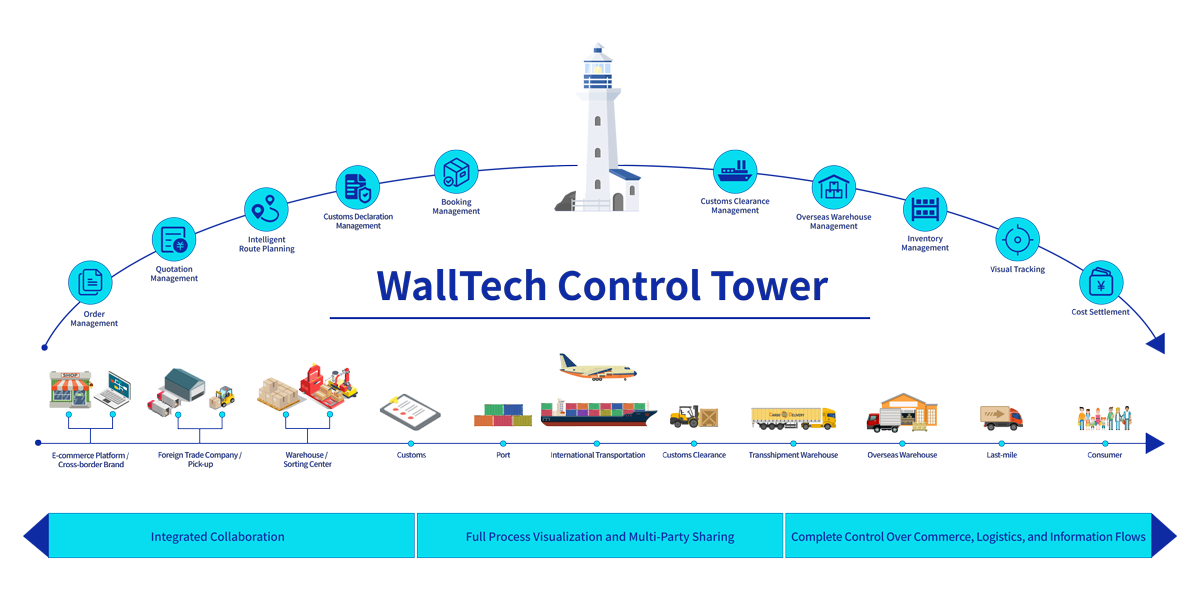
A powerful logistics ERP system is more than just software, it’s a strategic driver of operational efficiency, customer satisfaction, and business scalability. Whether you're a freight forwarder needing real-time visibility or a transportation provider automating your fleet, platforms like eTower and CargoWare from WallTech deliver the flexibility and intelligence modern logistics demands. If you’re looking to upgrade your transportation ERP software or implement a scalable freight forwarding ERP software, WallTech’s logistics SaaS platforms are ready to support your transformation.
Logistics ERP FAQs
What does ERP stand for in a supply chain?
ERP stands for Enterprise Resource Planning. In supply chains, it refers to a unified logistics management system that integrates and manages all core logistics functions, from procurement to delivery.
How does ERP affect supply chain management?
ERP improves supply chain management by centralizing data, automating workflows, and enabling real-time collaboration between stakeholders, which leads to faster decision-making, fewer errors, and more efficient operations.
Is ERP necessary for supply chain optimization?
Yes. While small-scale operations may function without ERP, optimizing a modern global supply chain without it is challenging. ERP provides the visibility, automation, and scalability needed for sustained growth.
How does ERP improve inventory management?
ERP systems track inventory levels in real time across multiple warehouses, automate replenishment, and prevent stockouts or overstocking. This ensures optimal inventory utilization and reduces carrying costs.

